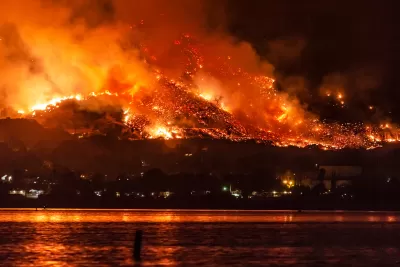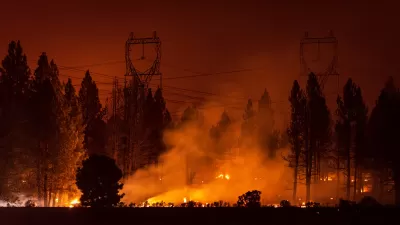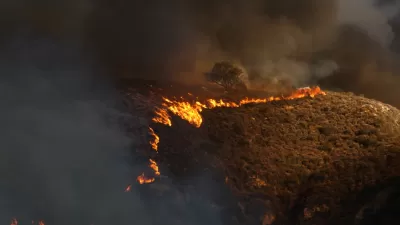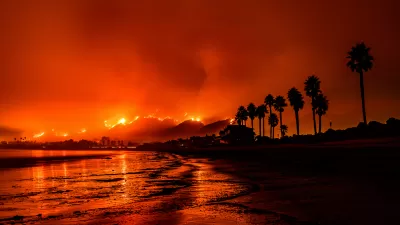Summer is just beginning, but wildfires in California have already burned more than 90,000 acres.

California's wildfire season has started intensely, with over 90,000 acres burned by June 20, stretching firefighting resources thin and prompting evacuations. As reported by Grace Toohey, perilous weather conditions, including strong winds, low humidity, and high temperatures, have fueled more than 30 wildfires from Los Angeles County to Colusa County, with two major fires rapidly surpassing 15,000 acres each. This early surge in wildfire activity is causing concern among officials about the upcoming hotter months and the potential for even more fires.
The National Weather Service has issued excessive heat warnings across much of Southern California, predicting temperatures up to 105 degrees, exacerbating the risk of wildfires. The recent fires have primarily been grass fires driven by windy conditions, with significant burns reported in the Post Fire near Gorman and the Sites Fire in Colusa County. Despite fewer overall fires compared to the five-year average, the acreage burned is significantly higher, indicating that the landscape is primed for rapid fire spread.
Experts like research ecologist Chad Hanson emphasize that climate change and weather patterns are influencing wildfire behavior, with higher global temperatures and extreme weather conditions adding challenges to fire suppression efforts. While not all wildfires are detrimental, as many ecosystems depend on post-fire habitats, the primary concern is the impact on human communities. Officials are advocating for a focus on protecting human life and development and urging the public to take preventive measures to reduce wildfire risks.
FULL STORY: California wildfires have already burned 90,000 acres, and summer is just beginning

Alabama: Trump Terminates Settlements for Black Communities Harmed By Raw Sewage
Trump deemed the landmark civil rights agreement “illegal DEI and environmental justice policy.”

Study: Maui’s Plan to Convert Vacation Rentals to Long-Term Housing Could Cause Nearly $1 Billion Economic Loss
The plan would reduce visitor accommodation by 25% resulting in 1,900 jobs lost.

Planetizen Federal Action Tracker
A weekly monitor of how Trump’s orders and actions are impacting planners and planning in America.

Parklet Symposium Highlights the Success of Shared Spaces
Parklets got a boost during the Covid-19 pandemic, when the concept was translated to outdoor dining programs that offered restaurants a lifeline during the shutdown.

Federal Homelessness Agency Places Entire Staff on Leave
The U.S. Interagency Council on Homelessness is the only federal agency dedicated to preventing and ending homelessness.

Restoring Northern India’s Himalayan ‘Water Temples’
Thousands of centuries-old buildings protect the region’s natural springs and serve as community wells and gathering places.
Urban Design for Planners 1: Software Tools
This six-course series explores essential urban design concepts using open source software and equips planners with the tools they need to participate fully in the urban design process.
Planning for Universal Design
Learn the tools for implementing Universal Design in planning regulations.
Caltrans
Smith Gee Studio
Institute for Housing and Urban Development Studies (IHS)
City of Grandview
Harvard GSD Executive Education
Toledo-Lucas County Plan Commissions
Salt Lake City
NYU Wagner Graduate School of Public Service





























